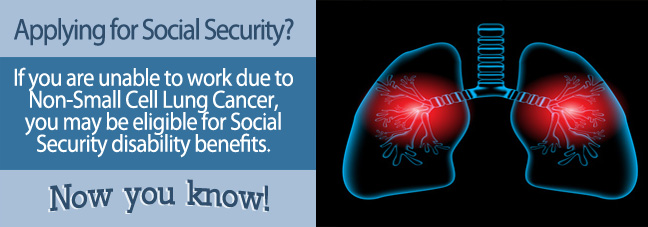Non-Small Cell Lung Cancer is a form of lung cancer that is especially resistant to chemotherapy and other forms of treatment. Certain symptoms, such as difficulty breathing, respiratory infections, and bone pain can eventually make it impossible for you to do sustained physical work.
If you are over the age of 50 and need to file for Social Security Administration (SSA) Disability benefits, the grid rules that apply to your case can increase your chances of getting the financial support you need.
Grid Rules and Non-Small Cell Lung Cancer
The SSA grid rules take certain factors into account when determining whether or not you are disabled from a vocational perspective. These criteria are:
- Age
- Highest level of education received
- Work skills obtained during your years of employment
- Whether those skills are transferrable
- Your residual functional capacity for work
The grid takes into account the fact that when you are over 50, you are less likely to be hired for an entry-level position or have skills that are transferrable into a field that is more accommodating to your disability.
Even if your grid finds that you can technically do other jobs, you may still be granted disability benefits as an older worker.

What Type of Work Can Someone Do With This Condition?
Non-Small Cell Lung Cancer is often accompanied by intense symptoms such as shortness of breath, weakness, and bone pain. If you work in a field that requires you to be on your feet a lot or do medium to heavy lifting, you may soon be unable to maintain gainful employment.
If, for example, you are a 58-year-old dock worker who has performed manual labor all your life, you may no longer be able to work or find another job, as employers rarely hire older applicants for entry-level jobs and you have no skills that can be transferred to a sedentary occupation.
For reasons like these, you are more likely to be approved for benefits if you are over 50, even if your ‘grid’ does not result in a disability finding.
Meeting a Blue Book Listing
The SSA evaluates all disability applications by determining if the applicant’s condition meets a listing in its Blue Book, which is its impairments guidebook.
Non-Small Cell Lung Cancer appears in Listing 13.14- Lungs, which will find you disabled if your cancer is recurrent, inoperable, unresectable, and has spread beyond your hilar lymph nodes.
The fact that your condition meets a Blue Book listing and you are over 50 means that your chances of being approved for disability benefits is much higher than a younger applicant, but there’s always a risk of your claim being rejected the first time around.
For this reason, you should consider approaching a Social Security Disability attorney or advocate for assistance in filing your claim. Both professionals can ensure that your application is correct and submitted on time, deal with the SSA on your behalf, and deal with the SSA on your behalf.
If problems arise or your claim is initially denied they will appear with you at the hearing and increase the likelihood of you ultimately receiving the benefits you need.
While you may certainly file your own claim, assistance from an attorney or advocate can give your application the extra support needed for a positive response from the SSA.